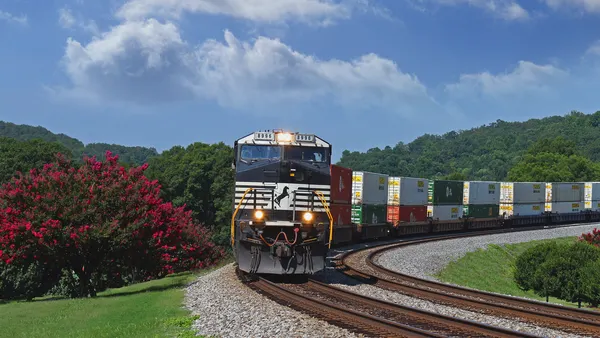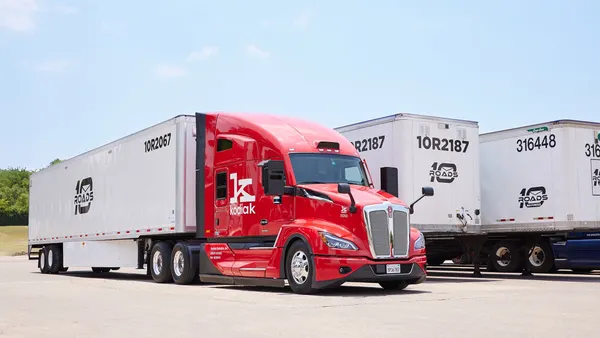Dive Brief:
- According to the West Coast MTO Agreement (WCMTOA), Traffic Mitigation Fees (TMF) at the Ports of L.A. and Long Beach will increase by 1.9% (roughly $1) to $32.12 per TEU or $64.24 per 40-foot container starting Aug. 1. Labor makes up the majority of the cost to run off-peak operations, so as this cost continues to increase year-over-year, so does the TMF.
- Revenue from the TMF supports the ports' OffPeak trucking program (administered by a maritime nonprofit called PierPass), an effort to reduce and even out cargo-related congestion and air pollution during day, night, and weekend operating hours. The WCMTOA website states in 2018 the cost to run the off-peak shifts was $288 million, $217.5 million of which was covered by the TMF alone.
- Since 2005, due to the TMF and OffPeak, congestion at the ports' 12 terminals has been reduced, along with air pollution levels, truck wait times and no-shows for container pick-ups.
Dive Insight:
When the OffPeak program was first implemented, the TMF was only applied to trucks picking up and dropping off cargo during the day shift to incentivize more of them to operate during evening hours instead. As recently as 2018, the TMF was $72.09 per TEU and $144.18 for forty-foot containers. The incentive brought the day and night shifts to a roughly 50-50 parity in terms of traffic levels.
However, as trucks tried to avoid the day-time fee and be first in line for the night shift, the port saw congestion increasing as more trucks started waiting outside the terminals as early as 3 p.m. for the start of the 6 p.m. shift. To solve this problem, the WCMTOA switched the TMF from the incentive-based model to a lower flat fee on all day and night shifts in November 2018.
As a result, rates today are significantly lower than they were in previous years. According to a statement from PierPass President John Cushing in a program update, the switch reduced the 3 p.m. lineup almost immediately.
Alongside this effort, the ports have implemented a web-based appointment system for trucks picking up and dropping off cargo at the 12 terminals during both shifts. According to PierPass, the system has opened up more time slots with 36% of day times and 45% of night times remaining unused despite record-breaking volumes coming through in recent months.














